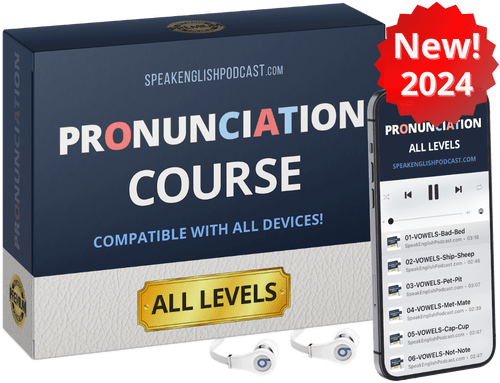Welcome to the Speak English Now Podcast, your resource for practicing your English speaking and listening. You will also learn about lifestyle and culture, language, vocabulary, and how to learn English more effectively.
Transcript:
Hi, Everyone!
I’m Georgiana, founder of SpeakEnglishPodcast.com. My mission is to help YOU speak English fluently.
In this episode:
I’ll talk about passive vocabulary, and I’ll focus on the difference between active and passive vocabulary.
After that, we’ll simulate a conversation with the Question & Answer technique.
OK, let’s start!
Like I’ve just mentioned earlier, in this episode, I’d like to focus on the passive vocabulary.
There are two kinds of vocabularies that we all acquire in time, no matter whether it’s your native language or a foreign language.
The first and more obvious one is the active vocabulary. These are the words we use when we speak or write.
On the other hand, there’s passive vocabulary. And these are all the words we understand when we read or listen.
Let me make myself clear: You fully understand the meaning of these words; you don’t just guess their meaning when you read or listen. However, you can’t use them in a conversation.
It’s complicated to use passive vocabulary when you speak because understanding the words just isn’t enough. You’ll need to listen and read these words several times before they become part of your active vocabulary.
At this point, you may think that using passive vocabulary is only difficult when you’re trying to speak in English, but unfortunately, you’ll find the same difficulty when using your mother tongue.
Let me give you an example:
Let’s say that you’re reading an article about the economic situation of a country. You fully understand the whole article, but if you had to speak about this topic, I’m convinced that you’d use words that you’re more familiar with. If you had to talk about the economic situation of a country, you’d use the active vocabulary and not the passive one.
When it comes to English, it’s the same. You can only use about 20% of all the vocabulary you’ve learned. So, if you know 1000 words, you’ll probably use only 200 words.
The best way to activate your passive vocabulary is by repetition. If you listen to the same audios many times, you’ll be able to transform passive vocabulary into active vocabulary.
We tend to use the words we listen to more. For example, the verbs to be, to go or objects like car, paper, etc. These words are so common that they have become part of your active vocabulary from the very beginning.
(END OF THE EXTRACT).
Get the transcript in PDF here.
Resources:
- Audio mp3 (right-click to save the audio)
- Transcript Episode PDF (right-click to save the transcript)



I really appreciate it. Thank you for helping people with their English this way.
It was very exciting.
God bless you!
Thanks a lot Georgiana you have helped me greatfull.